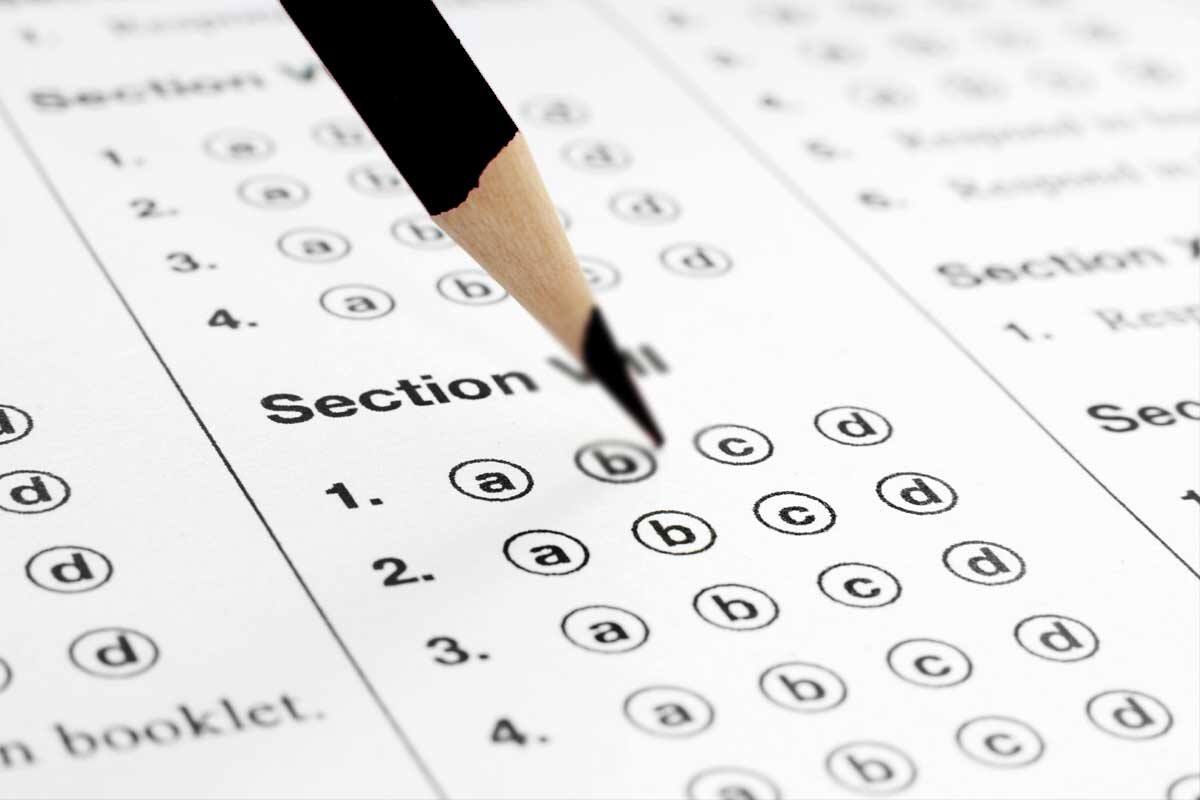Working hard to qualify for JEE exams but not reaching your goal? Hey Geeks, Here’s a quick guide to the Top 10 mistakes that every student must avoid to get high rank in JEE exams. By avoiding these mistakes, you can improve your exam performance and ensure better results. Let’s dive into our topic “Top 10 Common Mistakes to Avoid to Qualify in JEE Exams” .
In this article, we will discuss the top 10 mistakes to avoid while preparing for the JEE exams. From inadequate time management to neglecting important topics, we will cover everything you need to know to optimize your study strategy. By identifying and addressing these mistakes, you can enhance your chances of qualifying in the JEE exams.
Key Takeaways:
- Proper time management plays a vital role in JEE exam preparation.
- Neglecting important topics can harm your performance in the exams.
- Regular practice and revision are essential for success in JEE exams.
- Don’t rely solely on coaching institutes; balance self-study and guidance.
- Effective test-taking strategies can significantly improve your performance.
Avoid These Top 10 Mistakes to Qualify for JEE :
1. Lack of Proper Time Management

One of the biggest mistakes students make is not managing their time effectively during the JEE exam preparation. Proper time management plays a crucial role in maximizing productivity and ensuring comprehensive coverage of the syllabus.
When preparing for the JEE exam, it is important to allocate your time wisely for studying different subjects and taking mock tests. By creating a structured study schedule and sticking to it, you can ensure that you dedicate sufficient time to each subject, giving equal importance to all.
- A key aspect of effective time management is prioritizing tasks. Identify the topics that require more attention and allocate more time to them. Focus on understanding the concepts thoroughly rather than rushing through the syllabus.
- Break your study sessions into smaller, manageable chunks. This will help you stay focused and retain information better. Additionally, taking short breaks between study sessions can help refresh your mind and improve overall productivity.
Remember, it’s not just about the quantity of time you spend studying, but the quality of your study sessions. Concentrate on maintaining a balance between learning and practice to reinforce your knowledge.
- Another essential aspect of time management is dedicating time for taking mock tests. Mock tests simulate the actual exam environment and help you assess your understanding of different topics. Plan regular mock tests and analyze your performance to identify areas that require improvement.
By managing your time efficiently, you can ensure that you cover all the required topics and have ample time for revision before the JEE exam. Effective time management will help reduce stress and improve your overall preparation strategy, increasing your chances of success in the JEE exam.
2. Neglecting Important Topics

Neglecting important topics can severely impact your performance in the JEE exam. To excel in this highly competitive exam, it is crucial to identify and focus on the key subjects and concepts that carry significant weightage. In this section, we will highlight the important topics that you should prioritize in your preparation and provide strategies to ensure comprehensive coverage of the syllabus.
Identifying the Important Topics :
Before delving into specific subjects, it is essential to analyze the JEE exam pattern and previous years’ question papers. This analysis will give you insights into the recurring topics and concepts that are frequently asked in the exam. By identifying these important topics, you can allocate your study time more effectively and give them the attention they deserve.
Subject-wise Focus Areas
Each subject in the JEE exam has its own set of crucial topics that must be studied thoroughly. Here are the key focus areas for the three main subjects:
| Subject | Important Topics |
|---|---|
| Physics |
|
| Chemistry |
|
| Mathematics |
|
Effective Strategies for Coverage
Mere identification of important topics will not suffice unless you have a well-structured plan to cover them adequately. Here are some strategies to ensure comprehensive coverage of the important syllabus:
- Organize your study schedule: Allocate specific time slots for each subject and its respective important topics. Prioritize the topics based on their weightage and difficulty level.
- Create comprehensive study materials: Summarize the key concepts, formulas, and problem-solving techniques for each important topic. This will serve as a quick reference during revision.
- Practice with previous years’ question papers: Solve a sufficient number of questions from the important topics to develop a clear understanding of their application and to familiarize yourself with the exam pattern.
- Seek guidance from mentors or teachers: If you face challenges in understanding certain important topics, don’t hesitate to seek help from your mentors or subject teachers. They can provide you with valuable insights and clarify any doubts you may have.
By giving due importance to the crucial topics and implementing effective strategies for coverage, you will be better equipped to handle the JEE exam and maximize your chances of success.
3. Inadequate Practice and Revision

Lack of practice and revision is a common mistake made by many JEE aspirants. To succeed in the JEE exam, it is essential to understand the significance of regular practice and revision sessions. By integrating these techniques into your study routine, you can effectively consolidate your knowledge and improve your performance.
Practice:
Regular practice plays a crucial role in mastering the concepts and solving complex problems encountered in the JEE exam. It helps you develop a deep understanding of the topics and enhances your problem-solving skills. Dedicate specific time slots each day for practice sessions, focusing on different subjects and topics.
“Practice makes perfect.”
Make use of study materials, previous year question papers, and online resources to practice a variety of questions. By challenging yourself with diverse problem sets, you can broaden your knowledge and improve your ability to tackle different question patterns.
Revision:
Revision is a vital component of effective exam preparation. It allows you to reinforce your understanding of the topics and identify areas that need further clarification. Plan regular revision sessions, preferably weekly or bi-weekly, to review the concepts, formulas, and problem-solving techniques you have learned.
During revision, focus on understanding the underlying principles rather than rote memorization. Summarize key points, create concise notes, and use mnemonic devices to aid memory retention.
Tracking Progress:
Monitoring your progress is crucial to ensure that you are on the right track and making steady improvements. Keep a record of the questions you have practiced and reviewed during each session. This will help you identify weak areas that require more attention and measure your overall growth.
Regularly analyze your performance in mock tests and practice exams to gauge your preparedness for the JEE exam. Identify common mistakes, evaluate time management skills, and work on improving your accuracy and speed.
Effective Tips for Practice and Revision
- Set specific goals for each practice and revision session.
- Focus on understanding the concepts rather than memorizing formulas.
- Vary the difficulty level of practice questions to challenge yourself.
- Work on time management skills by setting time limits for solving questions.
- Utilize online platforms and mock tests for realistic exam simulations.
- Form study groups or join online forums to discuss and solve problems collectively.
- Seek guidance from teachers or mentors to clarify doubts and improve understanding.
| Benefits of Practice and Revision | How to Achieve it |
|---|---|
| Enhances problem-solving skills | Regularly solve a variety of practice questions |
| Consolidates knowledge | Review and revise topics regularly |
| Improves time management | Set time limits for solving questions |
| Identifies weak areas | Analyze mock test performance and track progress |
| Builds confidence | Achieve consistent improvement through practice and revision |
4. Overdependence on Coaching Institutes
While coaching institutes can provide valuable guidance and support for JEE exam preparation, relying solely on them can have its drawbacks. It’s important to strike a balance between self-study and the guidance provided by coaching centers to optimize your learning experience and potential.
Coaching institutes can be immensely helpful in providing structured study materials, expert faculty, and simulated exam environments that simulate the JEE exam. However, an overdependence on these institutes can hinder critical thinking and problem-solving skills, as it promotes a passive approach to learning. It is essential to develop a self-study routine for a deeper understanding of concepts and to cultivate independent thinking.
Self-study allows you to explore different resources like textbooks, online tutorials, and practice materials. It helps in developing your analytical skills, problem-solving abilities, and time management. It also allows you to revise topics as per your pace and focus on areas where you need more practice.
Striking a Balance
To strike a balance, consider the following:
- Set a study schedule that includes both self-study and coaching institute sessions.
- Take advantage of coaching institute resources but complement them with additional study materials.
- Participate in self-assessment activities and solve practice papers to gauge your progress.
- Seek clarification from faculty or peers when facing difficulties during self-study.
- Utilize online forums and communities to discuss doubts and exchange knowledge.
By striking a balance between self-study and coaching institute guidance, you can make the most of both approaches. This will enable you to develop a deeper understanding of the concepts, enhance analytical thinking, and maximize your potential for success in the JEE exams.
| Pros of Coaching Institutes | Pros of Self-Study |
|---|---|
| Structured study materials | Ability to explore diverse resources |
| Expert faculty guidance | Developing independent thinking |
| Simulated exam environments | Customizing study pace and focus |
| Peer learning opportunities | Flexibility in study schedule |
| Regular assessment and feedback | Avoiding overdependence on external sources |
5. Ineffective Test-taking Strategies

When it comes to the JEE exam, having strong test-taking strategies is vital for success. Many students, however, make common mistakes during the exam that can hinder their performance. In this section, we will discuss these mistakes and provide effective strategies to improve your test-taking skills. By incorporating these strategies, you can optimize your performance and increase your chances of achieving a higher score.
Time Management
One of the crucial aspects of test-taking is effective time management. Poor time management can lead to rushing through questions and making careless mistakes. To avoid this, start by familiarizing yourself with the exam format and allocating an appropriate amount of time to each section. Practice timed mock tests to develop a sense of pacing and ensure that you can complete the test within the given time constraints.
Question Selection
Another mistake students often make is spending too much time on difficult or time-consuming questions, leaving less time for easier ones. It is important to prioritize the questions based on their difficulty level and allocate time accordingly. Skim through the entire exam and attempt the easier questions first to ensure you don’t miss out on easy scoring opportunities.
Eliminating Wrong Options
During the exam, it is common for students to get stuck on a question and waste time deliberating between options. To avoid this, develop a systematic approach to eliminate wrong answers. Read the question carefully and eliminate options that are clearly incorrect. Narrowing down the choices will increase your chances of selecting the correct answer, even if you are unsure.
Remember, effective test-taking strategies are not limited to knowledge of the subject matter; they involve a combination of time management, question selection, and answer elimination techniques.
By implementing these strategies, you can approach the JEE exam with confidence and improve your overall performance. With practice and consistent application of these techniques, you’ll be able to maximize your potential and achieve the best possible results.
6. Poor Health and Stress Management

Neglecting health and failing to manage stress can have a negative impact on your JEE exam preparation. It is crucial to prioritize your well-being and adopt effective stress management techniques to perform at your best. Here are some tips to help you maintain a healthy lifestyle and manage stress effectively:
- Exercise Regularly: Engaging in physical activity can help reduce stress and improve overall health. Make sure to incorporate regular exercise into your daily routine.
- Get Adequate Sleep: Proper sleep is essential for brain function and memory consolidation. Aim for 7-8 hours of sleep each night to stay well-rested.
- Eat Nutritious Meals: Fuel your body with a balanced diet rich in fruits, vegetables, whole grains, and lean proteins. Avoid excessive caffeine and sugary snacks that can contribute to stress.
- Practice Relaxation Techniques: Explore relaxation techniques such as deep breathing exercises, meditation, or yoga to help reduce stress and promote mental well-being.
- Take Breaks: Schedule regular breaks during your study sessions to recharge and prevent burnout. Use these breaks to engage in activities you enjoy, such as listening to music or taking a short walk.
“Taking care of your health and managing stress are essential components of effective exam preparation. By prioritizing your well-being, you can enhance your focus, concentration, and overall performance.”
Remember, maintaining your health and managing stress is not only important during your JEE exam preparation but also in the long run. Incorporate these tips into your daily routine to lead a healthier and more balanced life.
7. Lack of Analytical Problem-solving Skills
Mastering analytical problem-solving skills is essential for excelling in the JEE exams. Understating the common mistakes students make in problem-solving and learning techniques to enhance analytical thinking abilities can significantly improve your performance in the exams.
Analytical problem-solving involves breaking down complex problems into smaller, manageable components and applying logical reasoning and critical thinking to find solutions. It requires a strong foundation in mathematical concepts, scientific principles, and the ability to apply them in real-world scenarios.
One common mistake students make is approaching problems without a clear plan or strategy. They often rush into solving the problem without fully understanding the given information or considering alternative approaches. This can lead to errors and incorrect answers.
Another mistake is relying solely on memorization rather than understanding the underlying concepts. JEE exams assess not only your knowledge but also your ability to apply that knowledge to unfamiliar situations. Therefore, it is crucial to develop a deep understanding of the fundamental principles and practice applying them in a variety of problem-solving scenarios.
To enhance your analytical problem-solving skills, here are some techniques you can incorporate into your study routine:
1. Practice with a variety of problem types:
Expose yourself to different types of problems found in the JEE exams. Practice regularly with problems that require analytical thinking and problem-solving skills. This will help you become familiar with different problem-solving approaches and build confidence in tackling complex problems.
2. Break down complex problems:
When faced with a complex problem, break it down into smaller, more manageable parts. Identify the key information, variables, and relationships between them. This will help you approach the problem systematically and devise a more effective solution strategy.
3. Develop logical reasoning skills:
Practice logical reasoning exercises and puzzles to sharpen your analytical thinking abilities. These exercises will help you improve your ability to identify patterns, make connections between different concepts, and draw logical conclusions.
4. Seek guidance and feedback:
Don’t hesitate to seek guidance from your teachers, mentors, or peers. They can provide valuable insights and feedback on your problem-solving approaches. Collaborating with others can also expose you to different perspectives and help expand your analytical thinking skills.
By avoiding the common mistakes in problem-solving and incorporating these techniques into your study routine, you can enhance your analytical problem-solving skills and increase your chances of excelling in the JEE exams.
| Common Mistakes in Problem-solving | Techniques to Enhance Analytical Thinking |
|---|---|
| Rushing into solving problems without a clear plan or strategy | Practice with a variety of problem types |
| Relying solely on memorization instead of understanding the underlying concepts | Break down complex problems |
| Overlooking key information or relationships between variables | Develop logical reasoning skills |
| Not seeking guidance or feedback | Seek guidance and feedback |
By honing your analytical problem-solving skills, you will not only improve your performance in the JEE exams but also develop valuable skills that will benefit you in your academic and professional endeavor.
Conclusion
In conclusion, by avoiding these common mistakes and following the tips provided throughout the article, you can significantly increase your chances of qualifying in the JEE exams. Practice plays a crucial role in your preparation, so make sure to allocate your time effectively and engage in regular practice and revision sessions to solidify your understanding of the topics.
Additionally, focus on the important topics outlined in the syllabus and develop strong analytical problem-solving skills. Don’t rely solely on coaching institutes; instead, strike a balance between self-study and external guidance.
Remember to prioritize your health and manage stress effectively, as they both impact your overall performance. Maintaining a healthy lifestyle and implementing stress management techniques can go a long way in improving your exam preparation.
By following these guidelines and putting in consistent effort, you’ll be well-equipped to tackle the JEE exams and achieve your desired results. Good luck!
FAQ
What are the top 10 common mistakes to avoid to qualify in JEE exams?
The top 10 common mistakes to avoid to qualify in JEE exams include lack of proper time management, neglecting important topics, inadequate practice and revision, overdependence on coaching institutes, ineffective test-taking strategies, poor health and stress management, and lack of analytical problem-solving skills.
How can I effectively manage my time for JEE exam preparation?
To effectively manage your time for JEE exam preparation, allocate specific time slots for studying different subjects and taking mock tests. Create a study schedule, prioritize tasks, and eliminate distractions. Regularly evaluate your progress and make necessary adjustments to ensure optimal time management.
What are the important topics that I should focus on for JEE exams?
The important topics you should focus on for JEE exams vary across subjects, but some key areas include calculus, algebra, mechanics, electrostatics, and thermodynamics. It is important to thoroughly understand and practice these topics to achieve a comprehensive coverage of the syllabus.
How can I incorporate regular practice and revision into my study routine?
To incorporate regular practice and revision into your study routine, set aside dedicated time for solving practice questions and revisiting previously covered topics. Use past year papers and online resources for additional practice. Implement active learning techniques, such as creating flashcards or teaching the material to someone else, to reinforce your understanding.
Is it advisable to solely rely on coaching institutes for JEE exam preparation?
It is not advisable to solely rely on coaching institutes for JEE exam preparation. While coaching institutes can provide valuable guidance, it is equally important to engage in self-study and explore additional learning resources. Striking a balance between self-study and coaching institute support can result in a more comprehensive and well-rounded preparation.
How can I improve my test-taking strategies for JEE exams?
To improve your test-taking strategies for JEE exams, practice mock tests under timed conditions. Develop a systematic approach to tackling different types of questions. Work on time management skills, prioritize questions, and utilize effective methods to eliminate wrong options. Enhance your concentration and focus during the exam by implementing stress reduction techniques, such as deep breathing and positive visualization.
What can I do to maintain good health and manage stress during JEE exam preparation?
To maintain good health and manage stress during JEE exam preparation, prioritize self-care activities such as regular exercise, healthy eating, and sufficient sleep. Incorporate stress management techniques, such as mindfulness, meditation, or engaging in hobbies, to reduce anxiety. Take short breaks during study sessions to refresh your mind and prevent burnout.
How can I enhance my analytical problem-solving skills for JEE exams?
To enhance your analytical problem-solving skills for JEE exams, practice solving a variety of problems from different topics. Analyze the problem-solving approaches used in practice tests and previous exams. Develop a systematic problem-solving method, break down complex problems into smaller components, and utilize logical reasoning to arrive at the correct solutions.
How can I increase my chances of qualifying in the JEE exams?
By avoiding common mistakes such as lack of time management, neglecting important topics, inadequate practice and revision, overdependence on coaching institutes, ineffective test-taking strategies, poor health and stress management, and lack of analytical problem-solving skills and following the tips provided throughout this article, you can significantly increase your chances of qualifying in the JEE exams. Remember to practice regularly, manage your time well, focus on important topics, maintain a healthy lifestyle, and enhance your analytical thinking abilities.


